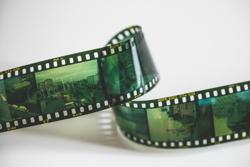If you like livermush and you’re ever near D.C./Maryland, try scrapple, which is almost the same thing.
memfree
- 2 Posts
- 34 Comments
I agree. Smoked sausage is tasty :-)
I was trying to say that a fresh meat would have been healthier than a smoked sausage with nitrites and all. You CAN get nitrite-free sausage, but unless you’re looking for that in particular, any given smoked sausage probably has questionable additives.
Random info:
Spiced french fries with cheese are always going to be tasty, but you’ve made it healthier by adding fresh veg! And then made it less healthy by adding smoked sausage! I’m sure the sausage makes it tasty, tho.
 2·19 days ago
2·19 days agoRe: The Man from Earth – there’s a sequel . It isn’t as good but I had to try it after seeing the first one.
My personal feeling on Waking Life is: it wants to be smarter than it is.
I know I watched Prince of Darkness in the theaters way back when, but I guess I ought to re-watch it because every detail has evaporated from memory… though perhaps that’s an indicator that it wouldn’t be worth a re-watch. Instead, I’m remembering Angel Heart from the same year. I’m not saying Angel Heart is great, but I remember a lot of that one and none of the other.
Based on your description of Better Man, I’m still not sure if I’ll watch it. I missed his Take That years, but I’ve seen Robbie Williams sing on Graham Norton and some British specials, particularly when he hosted a New Year’s show. On that one, there was a point where he shook hands with a fan and then made a face. He got called out for it and explained (on Graham, maybe?) that the hand was WET. Do I need to know more about this guy?
 2·19 days ago
2·19 days ago- Becoming Led Zeppelin (2025): Documentary. I don’t know if it would appeal to anyone outside the fanbase, but I enjoyed it.
- On Becoming a Guinea Fowl (2024): I’m on a little bit of an African binge, and this film worked for me. We watch Shula interact with her extended family after finding her uncle laying dead by the road. Those unfamiliar with her culture (like myself) learn certain customs and mores while learning about the dead uncle and his family with most the voices coming from the women.
- Beau Is Afraid (2023): Surrealist story of a man riddled with anxiety. fear, and neuroses. At almost 3 hours long, I kept thinking Pink Floyd’s Mother was a more succinct exploration of the same character in less than six minutes – but that’s not really fair because it is part of the double album The Wall (1h 21m), which has its own surrealist movie (1h 35m).
- Sisters (1973): Early Brian De Palma thriller. Well, ‘early’ in the feature film sense. I’m not saying it is fantastic, but he does a good job with a limited budget.
- Barb and Star Go to Vista Del Mar (2021): Why did I bother? I should know by now that SNL people generally make stupid movies. It was certainly the lightest and happiest movie of the week.
- Street Scene (1931): Pre-code story about people at an apartment building in NYC. I really liked this call back to a bygone era.
- Gentleman’s Agreement (1947): Gregory Peck plays a writer who pretends to be Jewish to feel what it is like to face American antisemitism. It felt appropriate to watch given the ongoing horrors in Israel, but as a movie it is only so-so.
 1·20 days ago
1·20 days agoSee: I rewatched this a while ago after not seeing it for more than a decade and I came away thinking, “This holds up so well. Everything in it is still relevant.” We still have the same sorts of racism, in-group dynamics, cross-cultural issues and on and on. Mostly, though, I can’t take my eyes off Sidney Poitier.
 2·21 days ago
2·21 days agoI don’t know. I’m usually ready to watch a meandering film with slow pacing, but I know people who won’t put up with that, so I might like movies you find unwatchable. In contrast, there’s a subset of French slice-of-life movies that I just generally dislike while other people love them. Anyway, I’ve only seen 4 Tarkovsky films, and they all move more slowly than, say, a superhero blockbuster. Of those 4, I guess the most accessible is Solaris. Some days/weeks later, I’d watch Andrei Rublev as a change of pace, then after another wait try Stalker.
Those should be enough to give you a feel for the director, and then maybe you can try Mirror and tell me what I’m missing. I feel like a bunch of symbolism is going over my head. Are those Maoists shaking little red books? What does that evoke from a Russian perspective?
 2·24 days ago
2·24 days ago- Sinners (2025) - 1930s southern black community has to deal with all kinds of issues internal and external when a pair of charming hoodlums return home to go straight and open a juke joint, but what to do about honkies trying to get in on the action? Unspoken moral?: White people suck.
- Dead Men Walk (1943) - really bad old horror with stilted acting and dialog.
- Mirror (1975) - Second time I’ve watched it and I am not smart enough to ‘get’ this movie. I adore both Stalker and Solaris (Andrei Rublev is interesting but not my favorite Tarkovsky film), and those I believe I ‘get’, but I feel like I’m missing half of what is communicated in Mirror. Still, it stirs emotions and is engaging to watch. Beautiful imagery.
- Oedipus Rex (1967) - Pasolini tells the ancient tale of a land blighted because of the sins of its ruler, then ties it to post-war Italy. Recommended.
- Medea (1969) - Another from Pasolini, but not as good as Oedipus Rex, but is does have opera singer Maria Callas, so worth a watch.
- Death of a Unicorn (2025) - awful. Inappropriate violence for kids and too mild for adult horror. There isn’t even much of a moral to find since none of it bears relation to reality.
- Hyenas (1992) - Now THIS is a movie. Set in a small African village, it is something of a parable on greed. It has funny hits in a dry, awful sort of way, and more approachable humanity than anything else on my list this week.
 7·1 month ago
7·1 month agoI have to disagree on this one. I loved the movie then immediately read the book, whereupon I discovered that as good as I’d found the movie, the book was even better. While I’ve ended up seeing the movie several times (when it happens to air), I’ve only reread the book once, but the book was, is, and will always be superior.
 1·1 month ago
1·1 month agoI think my view of the English came from a cross between Monty Python and the Alec Guiness in both Tinker Tailor Soldier Spy and Bridge Over the River Kwai – maybe with an unrelated bit of The Man Who Would Be King thrown in for good measure. Anyway, I only have the best things to say about the TV version, and I’m only now realizing that nere in the U.S., we missed 25 minutes of it to editing.
 1·1 month ago
1·1 month agoI’ve only seen four Tarkovsky films, but yes, he’s a fabulous director. I’ve not read the book and don’t know if an English translation would do it justice, so I’ll take your word for it that the extremely good movie was better than its source.
Note that I didn’t make that list of 6. I just thought the movie community might like to read the article. Y’all don’t have to call me out with all things they skipped because I’d have put stuff like the Wizard of Oz and Ran on there (and then quickly ducked because no one gets away with saying a movie is better than Shakespear’s original work).
 2·1 month ago
2·1 month agoI wasn’t gonna split that hair because it was based on some of Clarke’s shorter works that were optioned for the basis of the film. https://en.wikipedia.org/wiki/2001:_A_Space_Odyssey_(novel)
 8·1 month ago
8·1 month agoWell, if you’re going to go there, then A Clockwork Orange and 2001: A Space Odyssey. One can easily complain that Anthony Burgess wrote a better book filled with imagery and politics (and a glossary!) which Kubrick failed to capture, so that one might be arguable. On the other hand, while Arthur C. Clarke wrote a good book that Kubrick largely ignored, the result was one of the most innovative films in history. The film brought space to life in a way that printed words could not. Sure, Kubrick’s work can now be easily CGI-ed up, but he thought to do all of it and he did it the hard way before we had computers.
As far as Eyes Wide Shut goes… I kinda hated it because it felt like the default daydream of old men fantasizing about what they wish they’d done back when they couild still get it up. I read an article years ago about how for years Kubrick had script readers who would read hundreds of books and scripts to give him recommendations for what to make into his his next movie and they were all terrified of recommending something beneath The Master, and then he didn’t like the things he did see, and this went on and on, and I feel like he was stuck with material that a concensus would find acceptable/interesting rather than anything that was more avant garde.
 5·1 month ago
5·1 month agoHave you rewatched it recently? I ask because I rewatched it a few years ago and (while I still love it) I thought that modern audiences would complain about the pacing and such.
 1·1 month ago
1·1 month agoMostly old B&W movies, as I’m want to do. The stand out was:
- The Scarlet Empress (1934), which was absolutely gorgeous and full of horses charging about. Not walking, but galloping into towns, up stairs, and everywhere. It is littered with fantastic sets, dramatic lighting, and shots of Marlene Dietrich at her height, ranging from shy, to coquettish, to powerful, she chewed up every scene.
The rest are mostly skippable, but I recommend the first couple to film lovers for reference if for nothing else:
- As the Earth Turns (1934) - the film gives a dichotomy between city and farm life in the desires of two of its characters. It isn’t entirely successful at exploring different points of view, but overall, it was an interesting look back in time for: choice of subject, manner of delivery, set designs, and perhaps as reference for cinematography (it wasn’t a standout like the Scarlet Empress, but it was shot well enough for a lower budget, simple film).
- Civil War (2024) - Near-future dramatization of what it is like to be a photojournalist in a war. I appreciated that political parties weren’t mentioned. We can make guesses based on stuff like the non-military racist who’s killing people out in the boonies and similar hints, but that has nothing to do with the main story: photojournalist life during wartime.
- Movie Crazy (1932) - The premise is that Our Hero accidentally mails a handsome headshot to hollywood instead of his own image, whereupon he sets off for a screentest and sees an actress in costume that he later can’t identify as the some person such that he flirts with both her personnas and annoys her. Lots of pratfall-style silliness throughout via Harold Lloyd. Pre-code film with post-code content (nothing too risque, and an ending fight seen meant to be funny and long, but not that violent).
- They Met in Argentina (1941) - predictable, repetitive light fare, but the singing was nice.
- Baby Take a Bow (1934) - It’s got Shirley Temple, if that works for you. She was about 5 and yes, she does some dancing.
- The Blue Bird (1940) - It’s got Shirley Temple. She was about 11.
- Honeymoon (1947) - It’s got Shirley Temple. She was about 18.
 2·1 month ago
2·1 month agoI make everyone I can watch The Shop Around the Corner <3
 101·1 month ago
101·1 month agoDo any experiment for me, okay? You’re down here reading comments.
When you finish this post, just scroll up to the pic real quick and scroll back down and lemmie know what you think.“Hello, Newman.”
 1·1 month ago
1·1 month agoI guess I just can’t hear “literacy gains” as anything but a postivie regardless of source; even (if not especially) if it is an ‘enemy’ population.




** “Hildegarde Withers” series of whodunit murder/comedies (there were 6, but I only saw 5) **